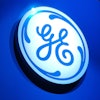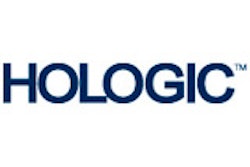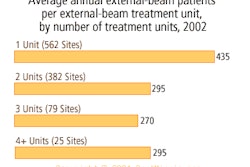One of the last independent x-ray firms could be independent no more. The parent of Del Medical Systems of Franklin Park, IL, is offering to sell the company and has received more than a dozen responses from interested parties, according to company executives.
Del Global Technologies began soliciting offers for Del Medical earlier this summer, and this month received letters of intent from potential buyers, according to Walter Schneider, president and CEO of Del Global and president of the Del Medical unit. Schneider said Del should be able to identify its lead candidate for the purchase in the next 60-90 days, with the final transaction completed by the end of 2004.
Del operates in both the medical and power-conversion industries, with medical making up 70% of the company's revenues, Schneider said. The company's medical products are sold through a network of dealers and distributors, as well as through private-label channels.
Del has grown through acquisition in recent years, and its brand names represent some of the oldest marques in the radiology industry. Its Universal brand has been in existence for some 72 years, its Gendex brand is 26 years old, and its Villa Sistemi Medicalli subsidiary in Italy is a 46-year-old company that has carved out a niche in the European market for remote-controlled radiography/fluoroscopy systems. Taken together, the company has an installed base of some 15,000 x-ray units worldwide, Schneider said.
Del has targeted the market for economical radiography and R/F systems that are less expensive alternatives to units sold by multimodality vendors. The company recently added digital capabilities to its systems through a licensing agreement with Hologic of Bedford, MA, that enables Del to manufacture Epex digital radiography systems at its facility in the Chicago area.
Hitting a rough spot
Despite its long history, Del has seen repeated turbulence in recent years. The company was hit with an accounting scandal in 2000 regarding its revenue-recognition practices that resulted in the departure of its chief executive and an investigation by the Securities and Exchange Commission. Del's RFI power-conversion division, meanwhile, was hit with an investigation by the Department of Defense that resulted in criminal and civil charges.
Under Schneider's leadership in the medical systems division, Del began putting the pieces back together. But the turmoil wasn't over -- the company last year experienced a revolt by one of its largest shareholders, investment firm Steel Partners II of New York City.
The revolt proved successful. Steel Partners gained control of the company though a proxy fight and installed its own board of directors in June 2003. Schneider was then promoted from the medical systems division to run the entire company.
The company last month announced the final settlement of the SEC investigation, as well as shareholder litigation that had ensued after the revenue-recognition problems surfaced. The Department of Defense investigation was also settled, but at a price -- the deal called for Del to pay $5 million in fines and restitution. The company didn't have the cash in the bank, so it retained an investment bank to help it explore "strategic alternatives" that would help it pay the DoD fine while keeping its core assets operating.
One of those alternatives is to sell off its power conversion and medical assets, so Del has begun contacting likely buyers for the businesses. Del is already in due diligence to sell one of its power-conversion divisions, with the other power-conversion unit not far behind.
Entertaining offers
As for the medical division, Del's management has made 16 presentations to investment groups at its Franklin Park and Milan facilities, Schneider said. Del's U.S. and Italian businesses could be broken up and sold separately, but Schneider said that the leading bidders for the businesses see the value in keeping the companies together as a single platform that can operate in both the radiography and R/F segments.
Although Del has had a troubled past, the medical division has been operating profitably for the past two years, Schneider said. "We've spent a lot of money in fixing (the problems) and rebuilding," he said. "We got through it where a lot of companies would have failed. The medical operations grew and continue to grow."
For the first nine months of the company's 2004 fiscal year (end-May 1), the medical systems group produced revenue of $55 million, up 35% compared with $40.8 million in the same period of 2003. The medical division had operating income of $4.5 million, compared with operating income of $713,000 in the first nine months of fiscal 2003.
Del has also experienced recent success in winning large international government orders. The company recently fulfilled a $9 million order from the government of Mexico for 22 Villa remote R/F systems, and is in the process of fulfilling an order for 100 R/F systems sold to the government of Romania, with 60 systems shipped so far.
Potential ripples
Any sale of Del would likely ripple beyond just the company and its employees, however. Del's product line serves an important function for many dealers and distributors, giving them access to sell to and provide service for lucrative hospital accounts. One Del distributor worries that the medical division could be sold to a new owner with its own distribution network -- leaving Del's independent dealers and distributors out in the cold.
One possible buyer that's been mentioned is SourceOne Healthcare Technologies, the Mentor, OH, company that dominates the U.S. market for medical imaging equipment and supplies distribution. If SourceOne were to acquire Del's medical business, many of Del's independent distributors might decide to start emphasizing equipment from another independent x-ray firm, Quantum Medical Imaging of Ronkonkoma, NY, the Del distributor said.
"If you walk in (to a hospital) with the Del name, it is respected," the dealer said. "Quantum is respected, but it hasn't been around as long."
A SourceOne spokesperson declined to comment on whether the company had placed a bid for the medical division. For his part, Schneider said that, based on the bids that his company had received, he believed that the medical division's new owner would be "dealer friendly."
"I've heard rumors that the investor would be someone who has their own network and wouldn't need dealer distribution ... that is not correct," Schneider said. "People who are presently involved who will most likely be the successful bidders are those who are very pro dealer distribution on a national and international basis."
By Brian Casey
AuntMinnie.com staff writer
August 24, 2004
Related Reading
Del Medical shows Q3 sales growth, June 16, 2004
Del Global gets SEC OK, June 2, 2004
SourceOne, Del expand distribution pact, April 22, 2004
Del Medical sales climb, March 16, 2004
Favorable currency effects boost Del revenues, November 4, 2003
Copyright © 2004 AuntMinnie.com



















